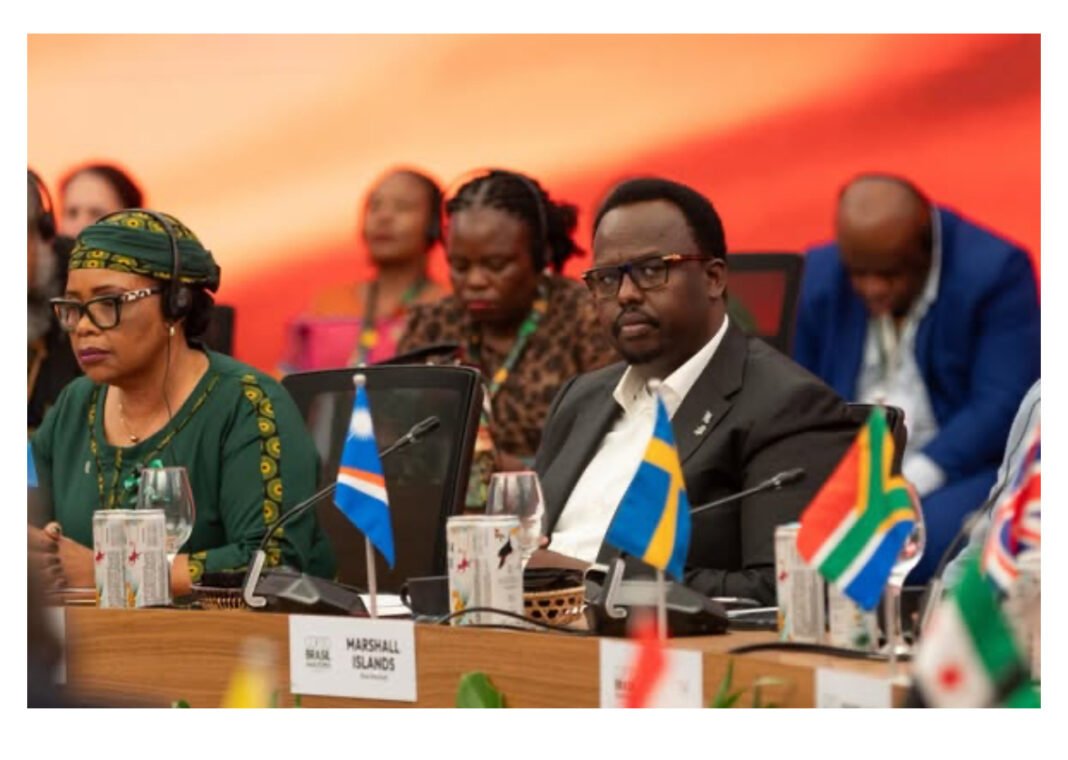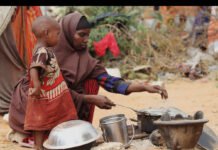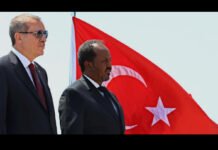By HAN News Desk
BELEM — Somalia’s Deputy Prime Minister, Salah Ahmed Jama, has delivered an impassioned speech at a high-level global forum marking the 10th anniversary of the Paris Agreement on climate change, calling for a new era of equitable and sustainable climate finance that prioritizes partnership over charity.
The event, held in Belem, Brazil, forms part of the ongoing COP30 World Leaders’ Summit, where heads of state, ministers, and environmental experts have gathered to assess progress on global climate goals and to discuss new strategies for adaptation and mitigation.
In his address, Deputy Prime Minister Salah emphasized that climate finance should not be seen as a form of aid or benevolence, but rather as a shared global responsibility to build resilient economies and communities capable of withstanding the devastating impacts of climate change.
“Climate finance is not charity — it is an investment in humanity’s future,” Salah said. “Vulnerable nations like Somalia do not need sympathy; they need fair partnerships, genuine collaboration, and access to resources that enable sustainable solutions.”
Salah highlighted that Somalia has made significant strides in advancing its national climate agenda, despite facing immense environmental and economic challenges. Earlier this year, the Somali government submitted its Nationally Determined Contributions (NDC) 3.0, a strategic plan aligned with the Paris Agreement’s global objectives to reduce carbon emissions and enhance climate adaptation.
The Deputy Prime Minister also unveiled Somalia’s NDC Financing Plan (2025–2035), an ambitious national framework designed to coordinate public investment, private sector engagement, and international funding in support of green growth and resilience-building initiatives. The plan aims to promote renewable energy, sustainable agriculture, and climate-smart infrastructure across the country.
“Our goal is to transform climate challenges into opportunities for innovation and development,” Salah explained. “Somalia seeks to lead by example — to show that even the most climate-vulnerable nations can drive sustainable change with the right support and commitment.”
Salah urged international financial institutions, donor agencies, and development partners to increase their support for countries like Somalia that are on the frontlines of climate change. He stressed that the burden of addressing the climate crisis must be shared fairly, with developed nations honoring their financial commitments to support adaptation and mitigation efforts in developing countries.
“True solutions lie in justice-based cooperation,” he said. “The time for promises has passed — what we need now is action, investment, and solidarity.”
The Belem gathering, part of the preparatory sessions leading up to the COP30 negotiations, focused heavily on how developing nations can secure sustainable and predictable financing for climate resilience. Somalia’s participation was widely viewed as a sign of its growing engagement in global environmental diplomacy.
Observers at the event praised Somalia’s proactive approach, noting that the country — long affected by droughts, floods, and environmental degradation — is increasingly positioning itself as a voice for vulnerable nations in international climate forums.
“Somalia’s message is clear,” said one African climate policy expert attending the meeting. “Climate finance must be built on fairness, accountability, and shared responsibility — not on short-term charity.”
As the COP30 summit continues, Somalia is expected to seek stronger partnerships with both regional and international stakeholders to ensure that climate investments translate into long-term resilience, economic empowerment, and environmental sustainability for its people.





